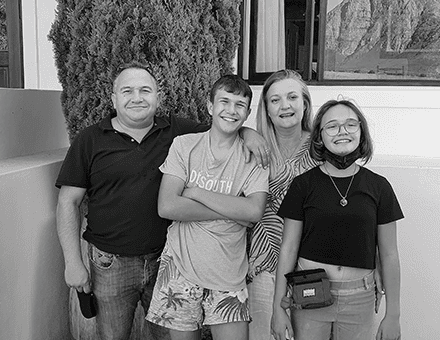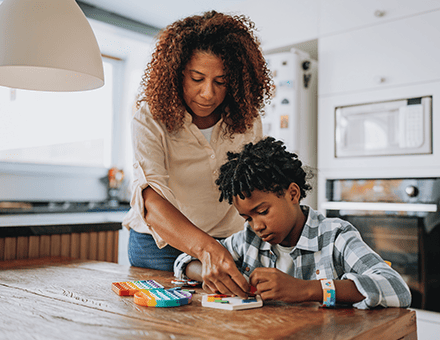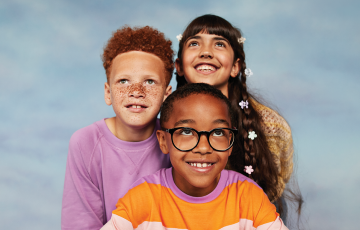Autism: How to navigate it

Being diagnosed as autistic does not mean you have an illness or disease. It just means your brain works in a way that’s different to other people…
Seeing the world differently
Autism spectrum disorder (ASD) is a neuro-developmental disability, says Juliet Carter, national director of Autism South Africa (ASA). An autistic person sees the world differently from the way a neurotypical person (someone who is not autistic) sees it, and may interact, communicate and behave differently. Global autism statistics are estimated at one in 100, according to the World Health Organisation. In South Africa, reliable data is lacking, but it’s estimated that around 2% of the population may be autistic.”
Autism can be diagnosed from around 18 months old, she adds, although research is exploring earlier identification. “Some studies suggest autism could be diagnosed as early as six months. Many parents report the first sign as their child not speaking.”

Global autism statistics are estimated at one in 100. In South Africa, RELIABLE DATA IS LACKING, but it’s estimated that around 2% of the population may be autistic
Common signs of autism include:
- Playing with toys differently from neurotypical peers. “This type of play should still be considered valid.”
- Needing routine and structure. “Without it, autistic children may experience higher levels of anxiety.”
- Expressing emotions (like all children) but seemingly more intensely.
- Experiencing sensory differences that can make the world seem overwhelming. Sounds may seem too loud, lights too bright and they may be a very fussy eater.
- Focusing on the details of objects, often examining them closely.
- Struggling to recognise dangerous situations and possibly needing more supervision and support.
- Having communication differences. “Some don’t speak, some have a limited vocabulary, while others have a more advanced vocabulary for their age.”
- Having intense interests that bring joy and can be a source of focus.
- Having repetitive movements or phrases – referred to as ‘slimming’ — that help with regulation and focus.
- Needing movement for behaviour regulation and learning.
- Sensory overload or an excess of information can lead to a meltdown.

Diagnosing autism
Durbanville couple Jaco and Noeline de Goede were first told their two children had ASD when their son Come, now 17, was eight years old.
“He’d been diagnosed with ADHD at age five, and this time psychologists at the Neurodiversity Centre diagnosed him as autistic. That’s when we realised his sister Marli, now 15, is also autistic.”
Many parents struggle with the diagnosis, Jaco says. “They’re shocked and can see it as a life sentence. But for us it was a logical conclusion to a process, looking back at the signs… The psychologists gave us and the kids tools to deal with it, and we read everything we could and researched it online, adjusting to this new world. For instance, both children are hypersensitive to light, so we don’t turn on overhead lights, and to sound, so we keep the volume low on the TV and radio and avoid shopping malls. We also invested in noise-cancelling headphones.”
But the two children are also different in many ways, reflecting the range of neurodiversity within the autism spectrum. Traditionally, there were three types of autism, Jaco explains: autistic disorder (classic’ autism); Asperger’s, which their son has, includes social challenges and unusual interests and behaviours, but without language or intellectual issues; and pervasive developmental disorder (PDD), which can come with social and communication challenges.
Since 2013, doctors no longer use these classifications – they roll the diagnosis into a single category, ASD, which offers a more cohesive approach to understanding and supporting those who are autistic. The current approach is to tailor a plan to the individual’s functioning and requirements.
“Corné can have discussions about advanced maths concepts, but struggle to get dressed in the morning, and is rigid in his habits, so we eat supper with him at the same time each night,” Jaco says.
“Marli is the opposite — she has pathological demand avoidance (PDA), characterised by an intense need to resist everyday demands and a preference for feeling in control, and any demand — like a set mealtime — meets resistance, so we have food available for whenever she’s ready. She can take on and try anything, if that’s what she wants to do, but having a bath or eating supper is simply too much to handle. What we find works best is to make routines around these aspects.”
Some of the differences between the children, Jaco says, seem gender-based, and gender has been found to have a role in diagnosis. “Four times as many boys are diagnosed as girls, who often mask or camouflage their autistic traits, and so are diagnosed only later. Boys tend to be loners, happy with their own company – our son noticed that we were experiencing the Covid lockdown only after four months! Girls tend to seek interaction, though they may not know how to manage it”
@thistrippyhippie happy Neurodivergent Celebration Week! you’re all super stars🌟✨ (suprise at the end😉) #neurodivergent #neurodivergentcelebrationweek #foryou #tourettes #wonderfullywiredbrains #neurodiversity #fyp ♬ Lo-fi hip hop - BADMYTH
Accepting neurodiversity
In 2019, Jaco and Noeline founded Autism Resources South Africa to share with other parents what they have learned and equipment they find helps. They now run socialisation groups and courses to help teach those with autism the expectations of others. For example: “My son had to learn to say ‘hi’ back to people; and my daughter had to learn that there’s no need to take a gift every time she sees someone.”
The hardest part of parenting autistic children, Jaco says, is managing the rejection by their peers, which can be hurtful. “But some children have it worse — they don’t have the verbal skills and intellectual ability. They struggle to express themselves and can understandably become aggressive out of frustration.”
The best part of parenting autistic children? “People think that those with autism are unemotional, because they’re not prone to showing it, but they feel so much! I love that my teenage son still wants to hold my hand in shops, and my daughter still wants hugs when she gets up each morning and goes to bed at night. Happily, acceptance of neurodiversity is increasing.”

Living with autism
While the exact causes of autism remain unknown, it is thought to include a genetic component, says Juliet Carter, whose eldest daughter is autistic. ‘Autism is a lifelong condition. Our goal should always be to help them become the best autistic person they can be. The support required by each person will be different, and the level of support, and the amount of support will differ each day. This is okay. Even neurotypical people require more support on certain days. When interacting with autistic individuals, we must always presume competence and accept them for who they are. Let’s support them in becoming the best version of themselves.”
Corné is in a mainstream private school and progressing academically, and Marli attends what the De Goedes call ‘Not A School’, which they established on a farm outside Durbanville. They hope to turn it into an ‘autism village’ in future, catering for the needs and abilities of autistic people.
Where to get help
Speak to your healthcare provider for a referral to a licensed therapist, and for information and support contact:
Autism South Africa
aut2know.co.za or on Facebook
Autism Resources South Africa
autismresources.co.za
The Neurodiversity Centre
neurodiversitycentre.co.za
By: Glynis Horning
Text courtesy of Jet magazine
Tips for parents
Interventions should focus on personal support and environmental adaptations, says educational psychologist Corneil Claassen, director of the Neurodiversity Centre.
“Holistic support includes psychoeducation for the individual and their support systems, as well as fostering a greater understanding in society, ensuring a more accommodating world for autistic individuals.”
- Change the way you speak about autism, says Juliet Carter: "Think neurodiversity; presume competence."
- Learn more about autism.
- Get appropriate, neuro-affirming support for your child as soon as possible.
- Move from simply raising awareness to acceptance.
- Get to know your child.
- Advocate for your child.
- Socialise.
- Understand your child's sensory profile.
- Get support and take care of yourself.
- Stay positive.
- Do not give up — ever!
Related articles

Latest Jet club magazine
We’ve got the latest trends, exciting prizes and exclusive savings just for you!
Jet Club will not pass your details to anyone else. By clicking the subscribe button you confirm you have read and agree to the Jet Club Terms and conditions and Jet Club Privacy Statement.
Subscribe

